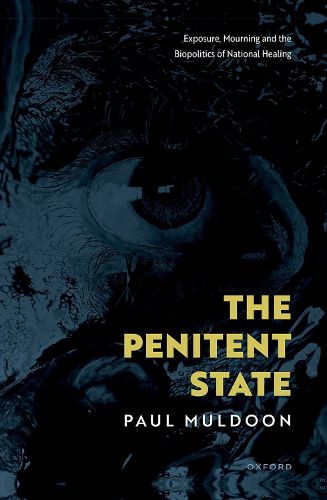Readings Newsletter
Become a Readings Member to make your shopping experience even easier.
Sign in or sign up for free!
You’re not far away from qualifying for FREE standard shipping within Australia
You’ve qualified for FREE standard shipping within Australia
The cart is loading…






This book asks a deceptively simple question: what are states actually doing when they do penance for past injustices? Why are these penitential gestures - especially the gesture of apology - becoming so ubiquitous and what implications do they carry for the way power is exercised? Drawing on the work of Schmitt, Foucault and Agamben, the book argues that there is more at stake in sovereign acts of repentance and redress than either the recognition of the victims or the legitimacy of the state. Driven, it suggests, by an interest in 'healing', such acts testify to a new biopolitical raison d'etat in which the management of trauma emerges as a critical expression of attempts to regulate the life of the population. The Penitent State seeks to show that the key issue created by the 'age of apology' is not whether sovereign acts of repentance and redress are sincere or insincere, but whether the political measures licensed in the name of healing deserve to be regarded as either restorative or just.
$9.00 standard shipping within Australia
FREE standard shipping within Australia for orders over $100.00
Express & International shipping calculated at checkout
Stock availability can be subject to change without notice. We recommend calling the shop or contacting our online team to check availability of low stock items. Please see our Shopping Online page for more details.
This book asks a deceptively simple question: what are states actually doing when they do penance for past injustices? Why are these penitential gestures - especially the gesture of apology - becoming so ubiquitous and what implications do they carry for the way power is exercised? Drawing on the work of Schmitt, Foucault and Agamben, the book argues that there is more at stake in sovereign acts of repentance and redress than either the recognition of the victims or the legitimacy of the state. Driven, it suggests, by an interest in 'healing', such acts testify to a new biopolitical raison d'etat in which the management of trauma emerges as a critical expression of attempts to regulate the life of the population. The Penitent State seeks to show that the key issue created by the 'age of apology' is not whether sovereign acts of repentance and redress are sincere or insincere, but whether the political measures licensed in the name of healing deserve to be regarded as either restorative or just.